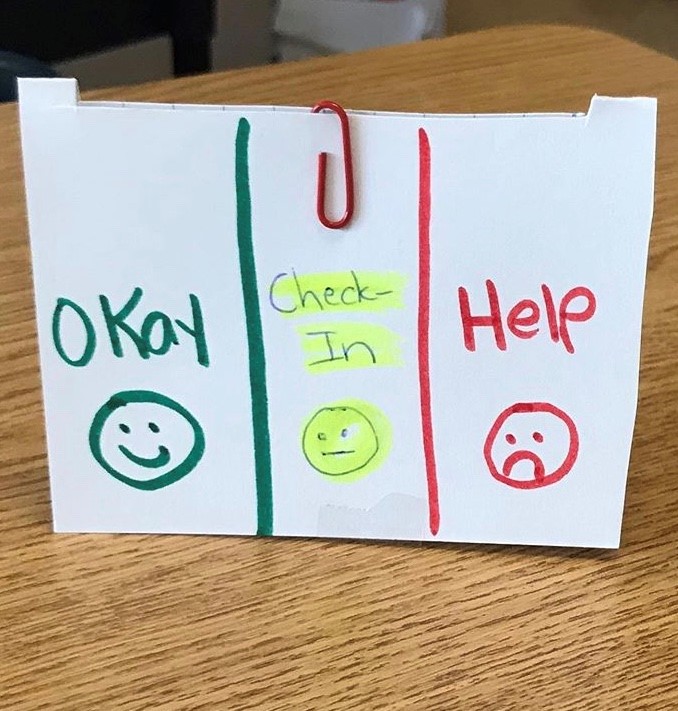A child’s first cry is their first voice. That cry is their first instance of self-advocacy. As a child grows, they learn the power of words and how it can influence their world. Parents and educators can shape this innate ability to teach them how to advocate for themselves in a positive way.
What is self-advocacy?
Self-advocacy is more than being able to speak up for yourself. It involves being aware of one’s self (e.g., thoughts and feelings), understanding what is important to you, and the ability to communicate those needs. Parents and educators can work on building the foundation for self-advocacy at an early age.
Why is it important?
Everyone needs to be heard. Having a voice is critical to human survival; it starts with a baby’s first cry. Feeling in control empowers people and, in turn, reduces anxiety. Individuals learn that communication is important in getting what you need and want. When a child is young, parents advocate for them. As a child gets older, they will have more control and make decisions that are best for them.
Impact on self-esteem
When babies/children do not receive appropriate responses to their attempts at communication, self-doubt creeps in. This can disrupt a child’s ability to send appropriate signals to others and build healthy relationships. This may cause dysfunction such as challenges bonding with parents and others, as well as a fear of taking risks. Ultimately, self-esteem can be impacted.

Build their vocabulary
A child’s behavior is their way of communicating. A child may not know what to say when he/she needs something, so they resort to challenging behaviors (e.g., crying, hiding or even aggression). If this type of behavior receives responses, it reinforces negative behavior and children learn this is how to self-advocate. Expanding a child’s vocabulary will increase their level of self-awareness to express what they maybe struggling with. Consider using visual pictures or create a word wall to help your child formulate appropriate responses.
Timing is everything
Timing is everything in life. There is a time and place in a classroom where self-advocacy will be met with open arms, and a time when it will be difficult. Children should find a quiet time, outside of a lesson currently in progress, when self-advocacy can be processed and supported by the teacher. The child’s needs may require planning and extra time in order to fulfill his/her request. So, it’s important for the child to find the right time to self-advocate and the right mindset of patience to see it happen to their satisfaction.

Importance of chores
Giving responsibility to a child (even at an early age), helps build the groundwork for self-advocacy. When children are given tasks they can complete on their own, it helps build their self-esteem.
Confidence is critical
When a child feels confident, they have the personal power to speak up when they need help. Asking for help does not come easily for some children. Consider starting simple. In a classroom, children can use a visual help card or a hand gesture. These tools provide the confidence they need when they feel something is difficult. Feeling confident empowers a child to ask for help and better enable them to express their own personal struggles.
Power of role play
In order to develop a skill, children need practice. Role-playing different scenarios with children help teach the necessary strategies and language for self-advocacy. Writing out a script can help with this process. Once your child can demonstrate the skill with you, have them practice outside of the home. For example, feeling comfortable talking to his teacher.
Respect All Around
Self-Advocacy creates respect all around. When a child can successfully self-advocate, the child realizes that he/she is more than the sum of his/her strengths and weaknesses. A child understands what his/her strengths are and how any challenges can be supported. Children also recognize that their peers also have needs that must be supported. Children learn that there is no shame in asking for help in the area of any challenge. In fact, it is freeing to realize that we all need assistance and support in something. Self-Advocacy creates self-respect in the children themselves and respect for others. It’s a win-win.
Learning to self-advocate will take lots of practice and time. Helping your child find their voice will empower them their whole life and ensures they are met with appropriate responses in order to fuel heathy communications going forward.
Resource
- Stick Up for Yourself! Every Kid’s Guide to Personal Power and Positive Self-Esteem by Gershen Kaufman.
A special thank-thank you to Bari Nefsky, Special Education Consultant(barinefsky@gmail.com, 416-822-9415), and Rivka Caro, Special Education Resource Teacher, for their contributions to this article.







